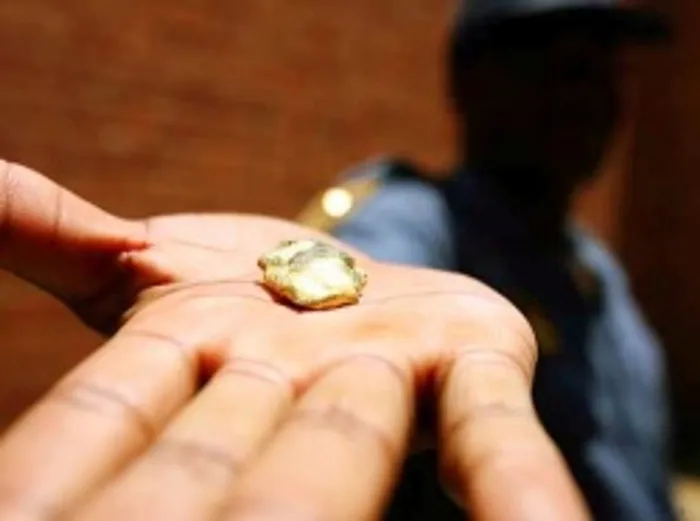
Further compounding the situation is a thriving informal gold sector through illegal miners known as "Zama Zamas", dealers and buyers. T
Image: Supplied
Tawanda Karombo
A new report from SwissAid has uncovered the extensive involvement of corrupt officials in the illicit trade and laundering of South Africa’s gold.
The report, released on Wednesday, highlights the grim reality that both criminal syndicates and complicit high-ranking officials are exacerbating the country's struggle with illegal gold exports, a trade that has turned opaque due to poor accounting of imports and exports.
Further compounding the situation is a thriving informal gold sector through illegal miners known as "Zama Zamas", dealers and buyers. This provides a fertile ground for the proliferation of illicit trade in gold which is then officially exported to destinations such as Dubai in the united Arab Emitates.
South Africa used to be one of Africa’s largest gold producers. Currently, large scale gold mining in South Africa is undertaken by companies such as Harmony Gold, with artisanal gold miners or Zama Zamas also big players in the production value chain as they enter disused mines often at a dangerous cost.
“Artisanal and small-scale gold mining (ASM) in South Africa takes place mainly in abandoned or unused industrial mines. The activity is illegal, largely controlled by syndicates, and involves mainly undocumented migrants from neighbouring countries,” noted the report.
Estimates put gold production from artisanal and small-scale mining at between 5% of total production or 7 tons to 51 tons annually. This gold, said SwissAid, “is laundered into formal supply chains through local refineries, and may be exported” legally.
Moreover, “South Africa is a known destination for smuggled ASM gold from neighbouring countries” such as Zimbabwe, with that bullion “also laundered locally before export” to global gold markets.
“Consequently, there is a high risk that reprocessed, unprocessed, melted or scrap gold from South Africa may in reality contain in freshly mined ASM gold associated with smuggling, money laundering or human rights violations.”
Worse still, explained SwissAid, the poor quality of South Africa’s statistics on the gold trade seriously complicated the analysis of the country’s gold sector and made the identification and calculation of illicit gold flows almost impossible.
This meant that some of the gold illegally produced in South Africa may be smuggled out of the country.
Nonetheless, most of the yellow metal extracted by the Zama Zamas has been described as being processed locally before being legally exported. For example, raw gold from Zama Zamas is bought by local buyers and sold on to scrap metal traders or pawn brokers connected to the syndicates, who then melt it, noted the report.
It added that this gold is then processed in small refineries and put on the international gold market via legitimate channels. This serves to launder not only Zama Zama gold from South Africa but also smuggled mined gold from other countries.
“The South African local scrap metal-to-refinery route leading to Dubai appears to be the preferred route for most syndicates. South African state authorities are aware of the high risk that illegally mined or smuggled gold enter formal supply chains and claim to be taking it seriously and acting accordingly,” reported SwissAid.
In a response to SwissAid querries, the Department of Mineral Resources on Thursday said: “Although there is a high probability of illegal gold ore being made ‘legal’ via illegal supply chains, various measures have been instituted to counter the effect”.
BUSINESS REPORT